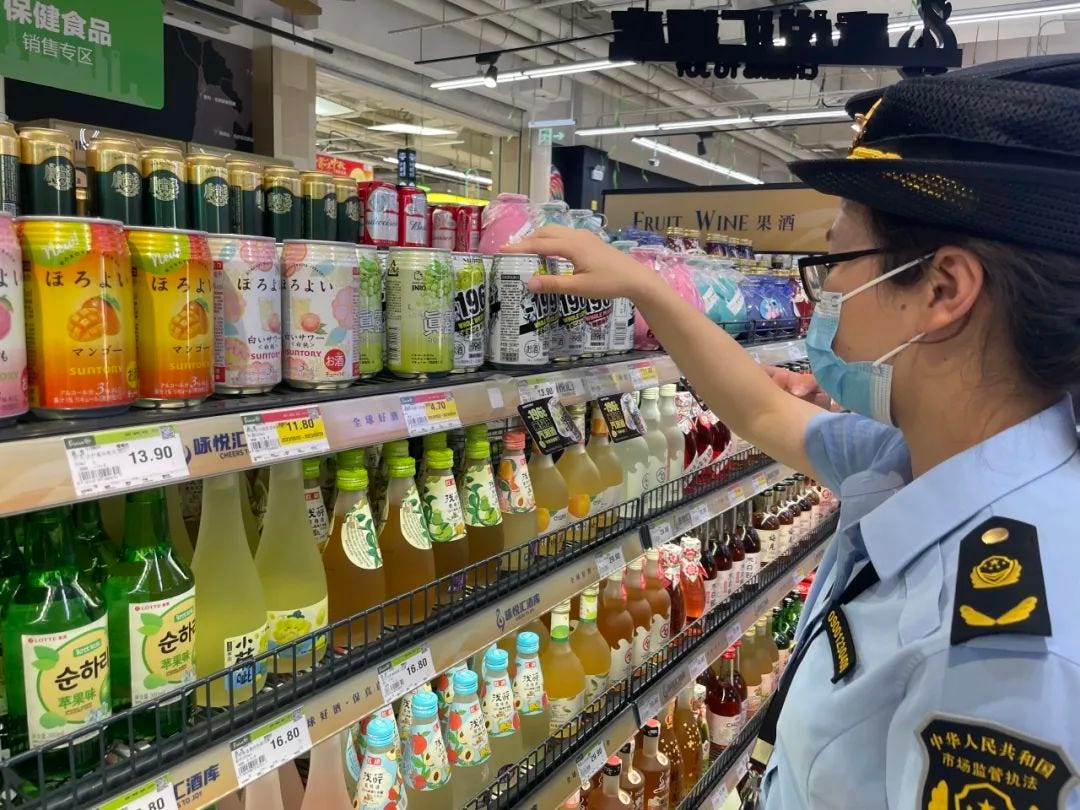Weekly #22: How Japan seafood ban hurts China business 🐟, Prada's Lipstick Effect 💋, beating Costco & Sam’s Club 🛒 | Following the yuan
Contrary to the divisive sentiments of some netizens opposing Japan, we all share one Earth. Am I being ‘too young, too simple’ for saying that?
Not much is going on this week with me, other than the fact that I seem to rarely match the speed of my action with the mounting ideas on my mind, anyone else has this problem? Help? 🆘
1. The collateral damage of the seafood ban 🐟
Last Thursday, China banned all seafood imports from Japan. Following the ban, a series of events began to unravel, extending beyond the industry and seemingly beyond control. On the same day, local regulators inspected Japanese restaurants and retail stores carrying Japanese goods, touting their due diligence capabilities.
In the months leading up to the ban, Chinese state media and certain bloggers had been rallying netizens to protest against the release of treated water. They completely overlooked the fact that the IAEA had deemed the water safe, which decisively influenced public sentiment to be opposing.
As a result, Chinese seafood producers are facing boycotts on livestreams, receiving live comments urging them to shut down their businesses. Chinese retailers, including a trade company in Zhejiang Province that sells Japanese cough drops, are being fined for carrying products from affected regions in Japan. A day before the ban, Chinese tourists embarked on their first group tour via ANA Airlines to Japan. Afterward, travel agencies reportedly experienced a surge in canceled orders.
Dig Deeper: I attended an economics talk last weekend and asked a professor at CEIBS how we could gauge the impact of such an action on the economy.



